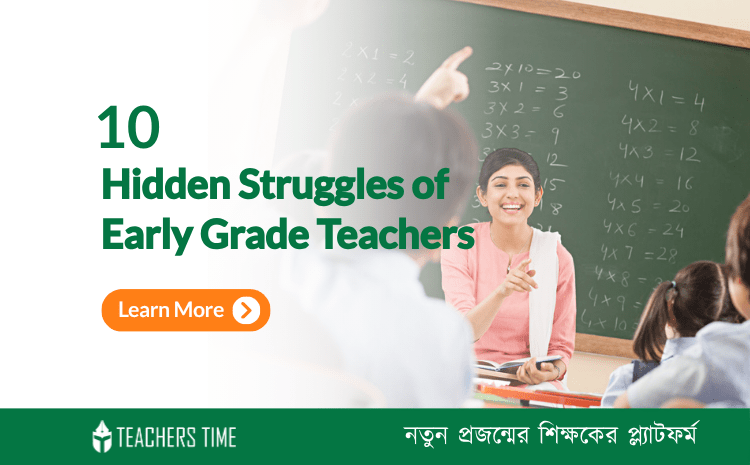
Ask any early grade teacher, and they’ll tell you: teaching young learners isn’t just about alphabets and counting. It’s about managing emotions, understanding developmental needs, handling disruptive behavior, crafting creative lessons, and—most importantly—shaping a child’s first experience of learning.
Without proper guidance, even the most passionate educators burn out. What they really need is effective training tailored to early education.
Let’s explore what kind of training makes a real difference—and why every early grade teacher deserves it.
- Understanding Young Minds: The Foundation First
Every teacher needs to know the stages of childhood development to teach effectively. A strong foundation in early learning principles helps educators connect with students emotionally, socially, and cognitively—essential for building trust and curiosity in the classroom.
- Curriculum Confidence: Designing With Purpose
Many teachers follow curriculum blindly. But real impact comes from understanding curriculum frameworks and how to set age-appropriate learning goals. This builds confidence and clarity in daily instruction.
- Creative Planning: Making Lessons Come Alive
Planning engaging, purposeful lessons is a game-changer. Knowing how to integrate play, storytelling, and visual aids sparks student imagination and ensures deeper understanding—turning routine days into discovery adventures.
- Teaching That Clicks: Methods That Work
Not all strategies suit young learners. Teachers thrive when they learn active techniques like group work, roleplay, and movement-based learning—methods that naturally align with how young children process the world.
- Classroom Harmony: Managing With Heart
Handling tantrums, attention loss, or classroom chaos isn’t easy. Practical training on discipline, motivation, and behavior management arms teachers with real-world tools to create respectful, structured spaces.
- Child Development Insights: Teaching Smarter
Understanding educational psychology—like Piaget and Vygotsky—gives teachers insight into how children think, grow, and interact. These theories guide smarter, developmentally appropriate instruction.
- Every Child Learns Differently: And That’s Okay
Knowing about learning styles and multiple intelligences helps teachers personalize lessons. Active, inclusive strategies ensure no child feels left behind.
- Inclusive Classrooms: Reaching Every Learner
Inclusive education is no longer optional. Teachers must be equipped to support children with special needs, communicate with parents, and create safe learning environments rooted in empathy and ethics.
- Smart Assessment: Going Beyond Grades
Assessing young learners isn’t about just tests. Educators learn to use both alternative and summative assessments to truly track growth, adjust methods, and support progress.
- Tech-Savvy Teaching: Tools for the Modern Classroom
Technology can simplify lesson planning, enhance engagement, and streamline assessment. Knowing how to integrate tools effectively is now an essential teaching skill.
Every early grade teacher deserves the confidence and clarity that only structured, practical training can provide. Investing in professional development not only improves classroom performance but also transforms teaching into a joyful, purpose-driven journey.
So, every early grade teacher should take this kind of training to improve their skills as well as their teaching style.
To support early grade educators in overcoming these 10 key struggles, Teachers Time BD has launched a dedicated 2-month course: “Teacher Training for Early Grade Educators”
This program is thoughtfully designed to cover each of the challenges outlined above—from emotional development to inclusive practices and tech integration.
Empower your teaching. Inspire young minds. Start your transformation today.


